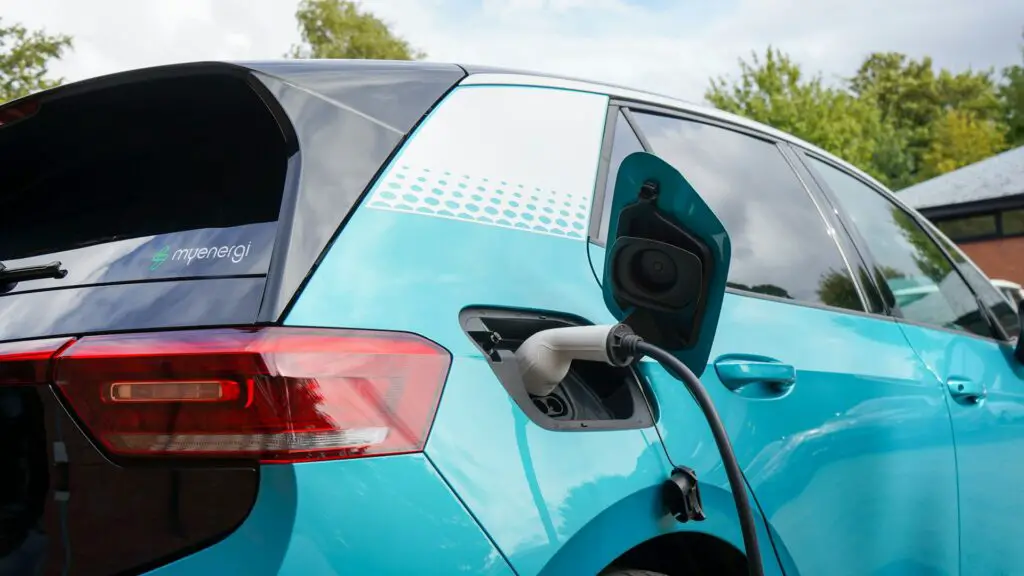Table of Contents
Boosting Chargepoint Access in Educational Settings and Beyond
The UK government’s latest initiative, the 2024 electric vehicle chargepoint rollout, under its Plan for Drivers introduces substantial support mechanisms aimed at facilitating the transition to electric vehicles (EVs). Key measures include significant grants for educational institutions, increased funding for local authorities, and innovative proposals to streamline chargepoint installations.
Grants for Electric Vehicle Chargepoints at schools and Nurseries
In a notable move to promote eco-friendly transportation in educational settings, the government is now offering grants covering up to 75% of the costs for purchasing and installing EV chargepoints. This uplift in financial support, providing up to £2,500 per socket, marks a significant increase from the previous £350 cap. State-funded schools, colleges, nurseries, and academies are eligible to apply, aiming to enhance chargepoint facilities for both staff and visitors. Furthermore, this initiative opens avenues for schools to potentially generate income by making these chargepoints accessible to the wider public.
Local Authority Funding
The distribution of the £381 million Local Electric Vehicle Infrastructure (LEVI) Fund signifies a commitment to expanding the electric vehicle charging network across the UK. Initial capital payments have been sanctioned for projects in three local authorities spanning from East Sussex to North Yorkshire, as well as two London boroughs. This financial injection, exceeding £14.2 million, is set to support the installation of thousands of new chargers, ensuring comprehensive driver support nationwide.
Workforce Development and Consultation Initiatives
To complement these financial measures, the government is also focusing on building a skilled workforce to expedite chargepoint installations. The introduction of the electric vehicle infrastructure (EVI) training course for local authority officers is a step towards achieving this goal. Additionally, a consultation process is underway to consider permitting electric vehicle chargepoint operators to conduct street works more efficiently, potentially reducing the timeframe from months to days.

The Government’s Commitment
Technology and Decarbonisation Minister, Anthony Browne, emphasises the government’s dedication to facilitating a smooth transition to EVs, with an investment surpassing £2 billion to date. These efforts are in line with the UK’s ambitious net zero targets and aim to mitigate the financial burden on citizens.
Market Trends and Legislative Developments
The surge in EV adoption is evident, with fully electric vehicles accounting for over 16% of new UK car sales in 2023. Legislative advancements have also been made to enhance the EV charging experience, mandating transparent pricing and the provision of contactless payment options at a significant number of new public chargepoints.
Supporting Green Initiatives in Education
The expansion of the grant for educational institutions aligns with the broader goal of promoting sustainability within the public sector. This move not only supports the development of green infrastructure but also contributes to the nationwide effort towards achieving net zero.
Enhancing Local Infrastructure
Local initiatives, such as Nottinghamshire’s Electric Vehicle Cable Channel Pilot Programme, exemplify the collaborative effort between government support and local ambition to enhance the availability of electric vehicle chargepoints. Such initiatives are crucial in making EV charging more accessible, especially for residents without off-street parking.
Industry Investment and Future Prospects
The government’s pro-EV stance has attracted significant industry investment, with major automotive manufacturers committing billions to develop EVs and related infrastructure in the UK. These investments are pivotal in securing the UK’s position as a leader in the EV market.
The UK government’s comprehensive approach to accelerating the electric vehicle chargepoint rollout is a testament to its commitment to sustainable transportation. By providing substantial financial support, fostering workforce development, and streamlining regulatory processes, the government is paving the way for a greener future. As these initiatives take shape, the UK is set to strengthen its infrastructure, making EV ownership more accessible and appealing to a broader segment of the population.
Frequently Asked Questions About Electric Vehicle Chargepoints
Who is eligible for the new electric vehicle chargepoint grants?
State-funded schools, colleges, nurseries, and academies in the UK can apply for grants covering up to 75% of the costs for purchasing and installing electric vehicle chargepoints, up to £2,500 per socket.
How can local authorities benefit from the LEVI Fund?
Local authorities across the UK can access the £381 million Local Electric Vehicle Infrastructure (LEVI) Fund to support the installation of new EV chargepoints in their areas, enhancing local charging infrastructure.
What training is available for local authority officers on Electric Vehicle Chargepoints?
The government is launching an Electric Vehicle Infrastructure (EVI) training course for local authority officers to support electric vehicle chargepoint procurement and installation, available to all local authorities from mid-March.
How does the new consultation aim to speed up chargepoint installation?
The consultation proposes allowing EV chargepoint operators to carry out street works using a permit system, which is quicker and cheaper than obtaining a licence, aiming to accelerate the rollout of chargepoints.
What measures are being taken to improve the EV charging experience for drivers?
New laws mandate transparent pricing and the availability of contactless payment options at public chargepoints, alongside the government’s investment in expanding the number of public chargepoints across the UK.

